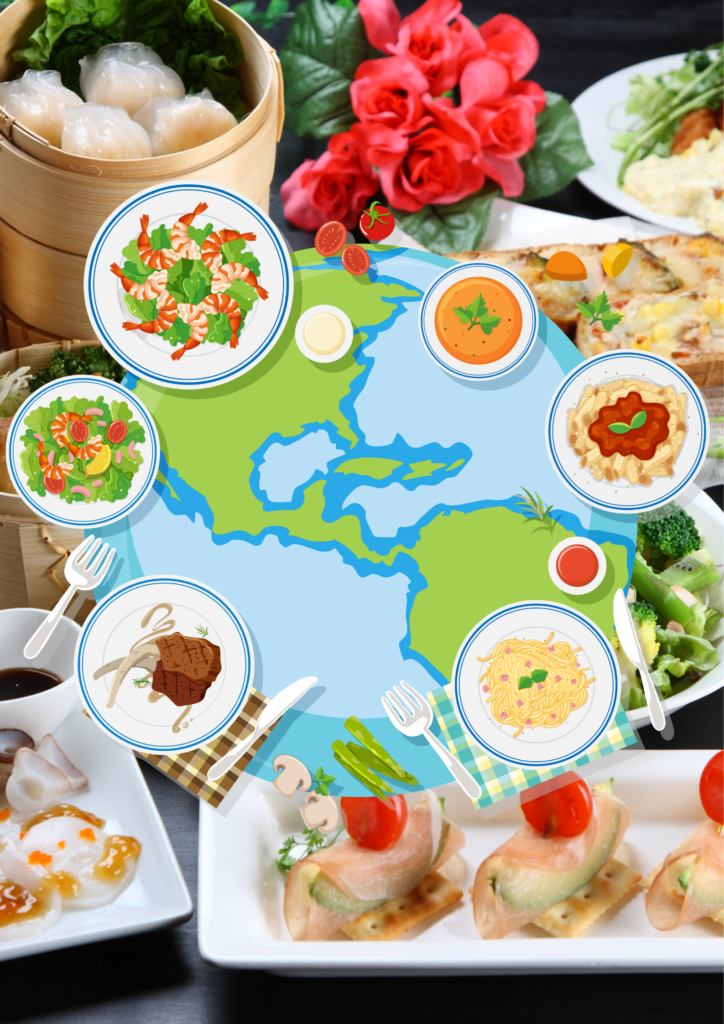A Culinary Journey Around the Globe

Mediterranean Delights: A Symphony of Flavors
The Mediterranean basin, a cradle of civilization, has long been renowned for its healthful and flavorful cuisine. Fresh produce, olive oil, and seafood form the foundation of Mediterranean dishes, which often incorporate herbs and spices like oregano, basil, and thyme. Greek moussaka, Italian pasta with marinara sauce, and Spanish paella are just a few examples of the region’s iconic dishes.
Southeast Asian Fusion: A Spicy Adventure
In contrast, the cuisine of Southeast Asia is characterized by its bold and vibrant flavors. Spices like chili peppers, turmeric, ginger, and lemongrass are used liberally to create dishes that are both aromatic and tantalizing. From the fragrant curries of Thailand to the fiery pho of Vietnam, Southeast Asian cuisine offers a sensory explosion for the palate.
Indian Cuisine: A Spice Odyssey
The Indian subcontinent is home to a vast and diverse culinary landscape, influenced by centuries of cultural exchange and religious practices. Indian cuisine is known for its complex blend of spices, which are used to create a wide range of flavors. From the fiery vindaloo to the delicate biryani, Indian food is a testament to the country’s rich culinary heritage.
East Asian Delicacies: A Culinary Masterclass
In East Asia, Chinese cuisine is renowned for its intricate preparation and delicate balance of flavors. Chinese chefs are masters of techniques like stir-frying, steaming, and deep-frying, which allow them to create a wide variety of dishes. From the succulent Peking duck to the spicy Sichuan hot pot, Chinese cuisine offers something to satisfy every palate.
Japanese cuisine, on the other hand, is characterized by its simplicity and emphasis on fresh, high-quality ingredients. Sushi, sashimi, and ramen are just a few examples of the many delicious dishes that have made Japanese cuisine popular around the world.
A Global Culinary Tapestry
The world’s diverse food traditions are a testament to the creativity and ingenuity of human beings. By exploring different cuisines, we can gain a deeper understanding of the cultures that produced them. Whether you’re a seasoned foodie or simply curious about the world around you, there’s no better way to experience different cultures than through their food.




















